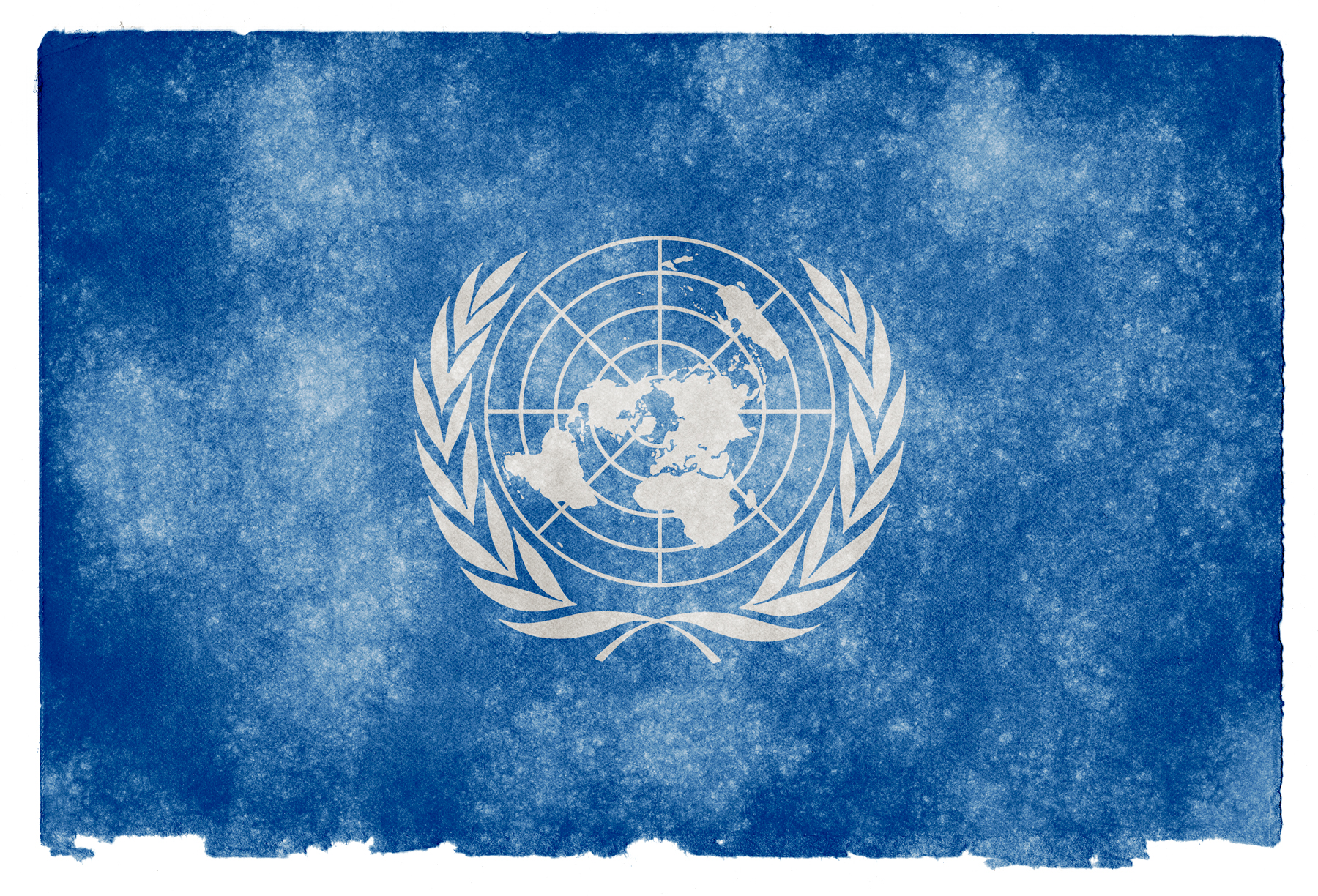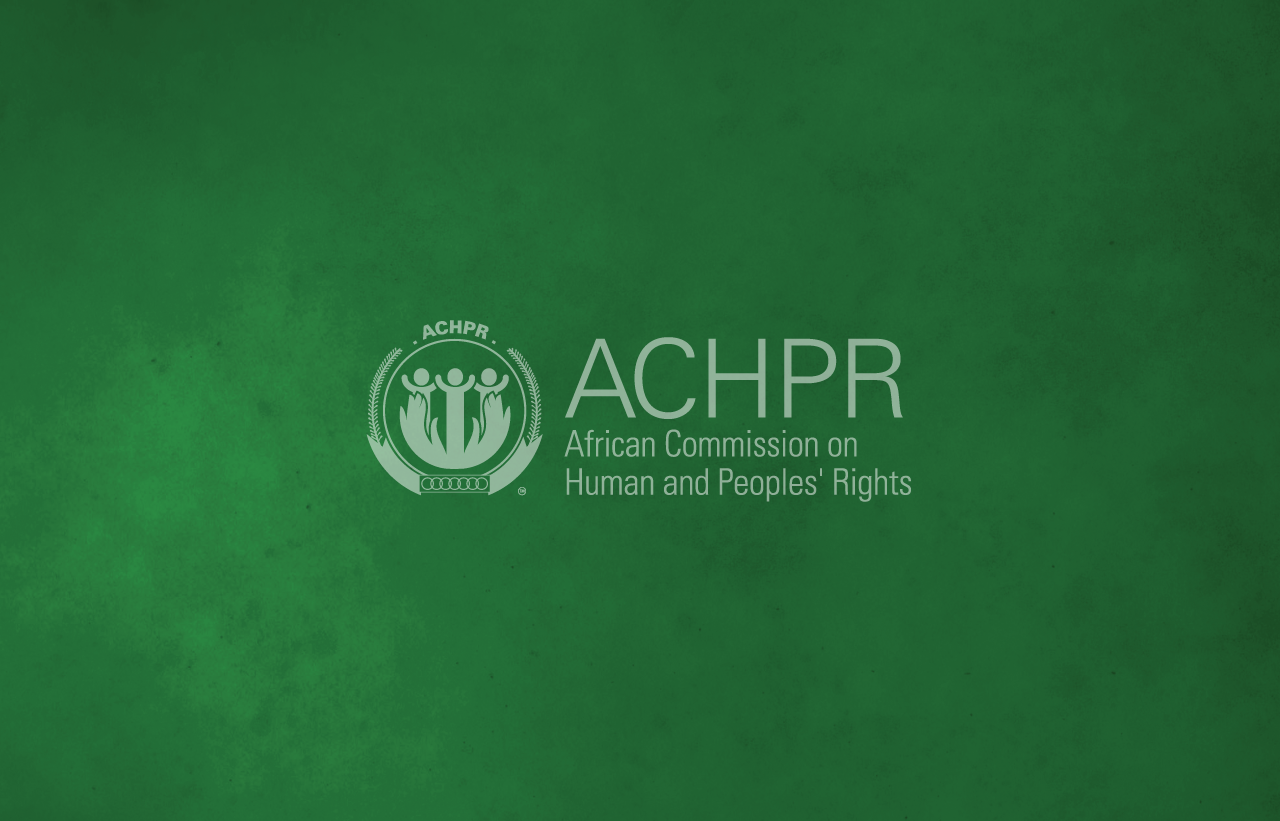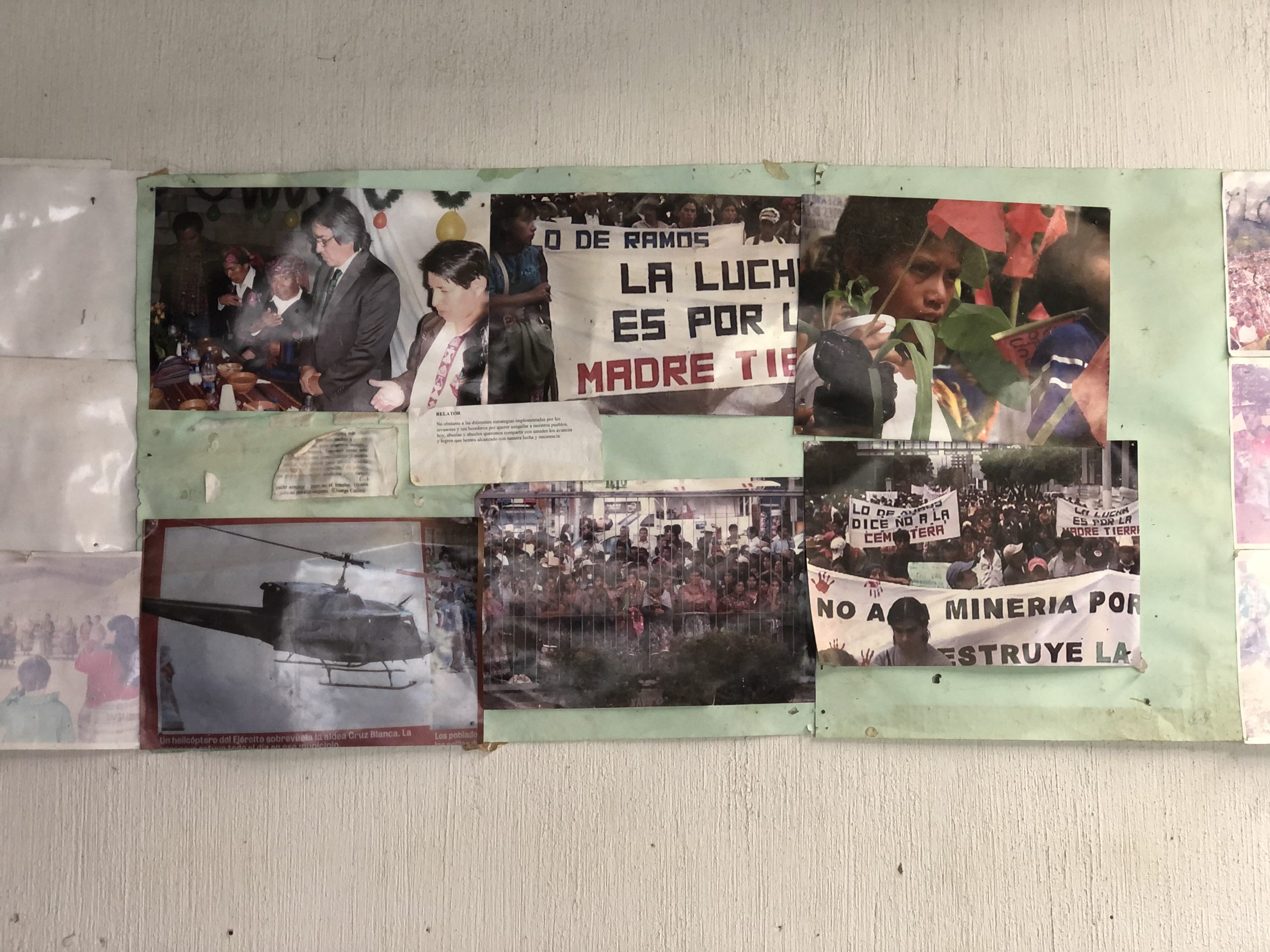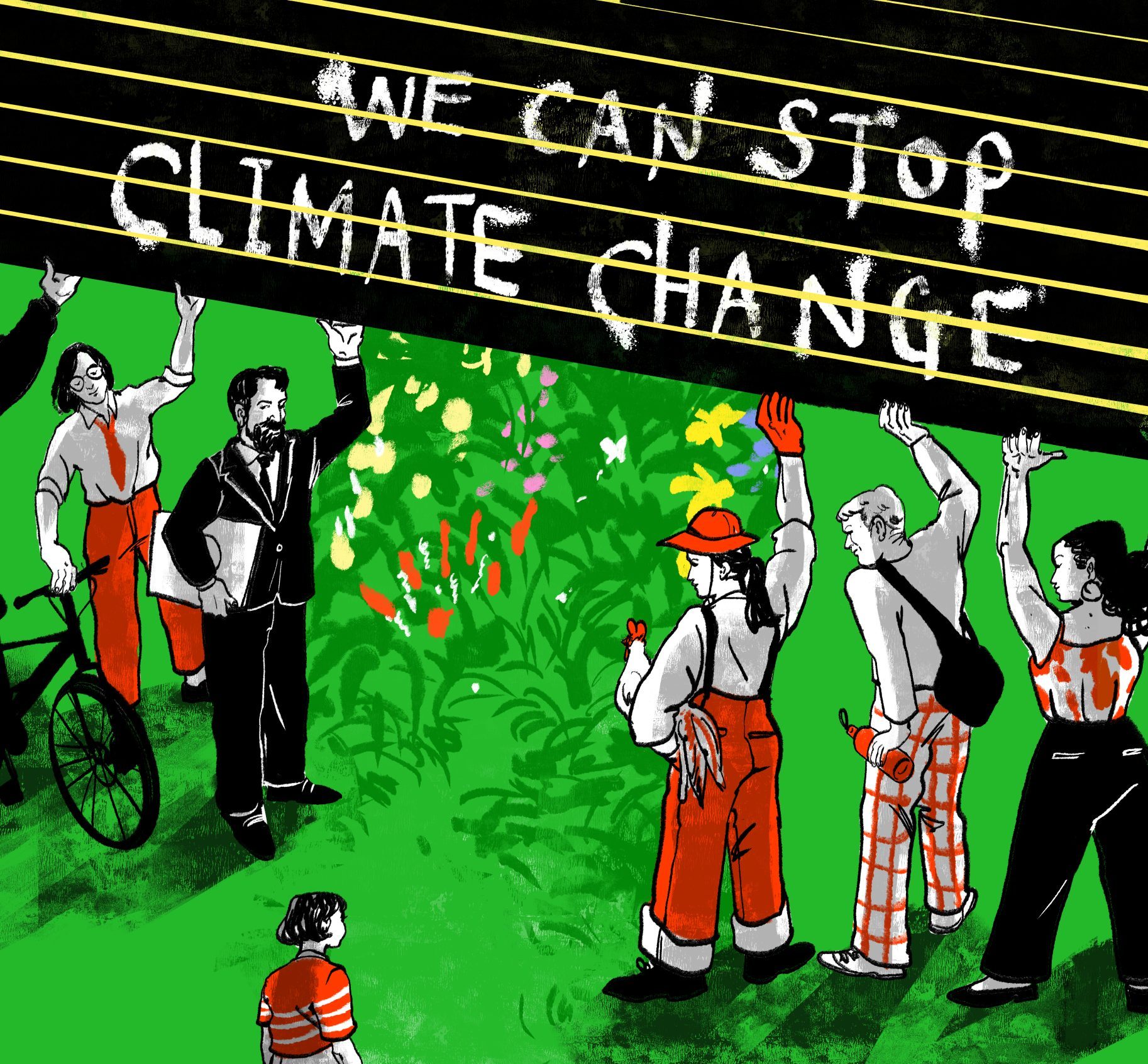What will happen during the NGO Forum and 77th Ordinary Session of the African Commission?
The NGO Forum
The Forum on the Participation of NGOs in ordinary sessions of the African Commission on Human and Peoples’ Rights (African Commission), also known as the ‘NGO Forum’ is an advocacy platform coordinated by the African Centre for Democracy and Human Rights Studies (ACDHRS) to promote advocacy, lobbying and networking among and between human rights NGOs, for the promotion and protection of human rights in Africa. The NGO Forum shares updates on the human rights situation in Africa by the African and international NGO community with a view of identifying responses as well as adopting strategies towards the promotion and protection of human rights in the continent.
This session will be hosted in person in Arusha International Conference Centre and participants can follow public proceedings on YouTube. It revives around the African Union 2023 theme of the year, ‘The Year of AfCFTA: Acceleration of the African Continental Free Trade Area Implementation’.

African Centre for Democracy and Human Rights Studies
The Forum will deliberate on the following sub-themes:
- Role of Youth in the Implementation of the African Union Agenda 2063: Africa’s young population, with over 400 million individuals aged 15 to 35, demands increased investment in economic and social development. Youth play a crucial role in realising the African Union’s Agenda 2063, contributing to sustainable development, social progress, and economic growth. The AfCFTA offers opportunities for youth to innovate, create businesses, and foster economic diversification and employment.
- Achievements and challenges of the Maputo Protocol: The Maputo Protocol, a significant international treaty addressing gender-based human rights challenges in Africa, has led to advancements in women’s rights across the continent. Despite its positive impact, challenges hinder its full implementation. Overcoming them requires collaboration among governments, civil society, international partners, and communities to fully realise the potential of the protocol and improve women’s lives across Africa.
- The African Union Theme of the Year on the acceleration of the African Continental Free Trade Area Implementation highlights African Union commitment to advance economic integration and development in Africa. AfCFTA’s goals include eliminating tariffs and trade barriers among member States, facilitating the flow of goods and services, attracting investments, and enhancing competitiveness. This aligns with the African Union (AU)’s Agenda 2063, a comprehensive development roadmap envisioning a prosperous and integrated Africa.
- Artificial Intelligence, Data Protection, and Human Rights: While AI technologies are gaining traction on the continent, concerns have arisen regarding data privacy, surveillance, discrimination, and potential human rights infringements. Despite the relatively slow but promising steps to minimise adverse effects of AI on human rights, implementation and enforcement remain significant hurdles.
- Silencing guns in Africa: conflicts continue to ravage the continent despite clear continental ambitions towards ending them. The AU goals to end conflict by 2020 emphasised the role of political dialogue, conflict prevention, post-conflict reconstruction and peace-building. Collaboration among governments, civil society organisations, and local communities is crucial to successfully achieve the goal of “Silencing Guns” in Africa.
- Shrinking Civic Space on the African Continent: the diminishing civic space in Africa poses a growing concern, affecting democracy, human rights, and overall societal progress. Civil society organisations, which play a crucial role in advocating for citizens’ rights, are facing increasing restrictions, harassment, and legal limitations. Recognising the invaluable role of civil society in promoting transparency, accountability, and societal progress is pivotal for preserving democratic values.
- Accountability of Reprisals and Judicial Killings in Africa: Ensuring accountability for human rights violations, including reprisals and judicial killings, is a crucial element in protecting human dignity and upholding the rule of law. Many African countries continue to witness instances of impunity. Cooperation among government, civil society and international organisations can promote accountability.
- The Fundamental Role of NGOs in the work of UN-Human Rights Mechanisms: the vital role NGOs play in strengthening the impact of UN-human rights mechanisms should be acknowledged. NGOs contribute by providing on-the-ground insights and expertise to UN mechanisms and bridging the gap between international human rights standards and local communities by translating complex legal language into understandable terms.
- Networking for Human Rights in Africa, adoption of strategies, best practices for contribution towards the attainment of peace, security and development in Africa.
- Special Interest Group Discussions, which will allow participants to identify recommendations to address challenges raised in panel discussions.
Panel discussions will revolve around 12 themes:
- Inclusion of Youths in the Implementation of the African Union Agenda 2063
- Assessing Achievements and Hurdles of the Maputo Protocol
- Balancing Progress and Privacy: Navigating AI, Data Protection, and Human Rights in African Context
- Analysing the Implications and Impacts of Anti-Constitutional Changes in African Nations
- Confronting Racism, Xenophobia, and Discrimination of Migrants in Northern Africa
- Exploring the Challenges and Responses to Shrinking Civic Space in African Societies
- Accountability for Reprisals and Judicial Killings in Africa’s Pursuit of Human Rights
- Exploring the Right to Development and Inclusive Growth through the African Continental Free Trade Area Agreement
- Rights and Trade: Reflecting on UDHR’s 75th Anniversary and Its Alignment with the Implementation of AfCFTA and the Africa We Want
- The Crucial Role of NGOs in Enhancing UN-Human Rights Mechanisms in Africa
- Strengthening Democracy and Ensuring Fair Elections across African Nations
- Charting the Path to Silencing Guns and Sustaining Peace in Africa
It is expected that the NGO Forum will achieve, among other goals:
- Documenting general trends and situation of human rights, democracy and rule of law in Africa
- Networking and partnership building amongst participants/stakeholders
- Adopting recommendations and resolutions where necessary to highlight them at the opening ceremony of the 77th Ordinary Session of the African Commission
The 77th Ordinary Session of the African Commission on Human and Peoples’ Rights
(Events are scheduled as per Tanzania time, GMT +3)
Panels and Launches (Item 6 cont’d)
- Panel on Maputo@20: A call for universal ratification, implementation, and domestication of the Maputo Protocol (23 October 2023, 9:00am -10:30am)
- Panel on the Addis Ababa Road Map (25 October 2023, 11:00am -12:30pm)
- Panel on the situation of Human Rights Defenders (25 October 2023, 14:30pm – 16:00pm)
- Panel on the Launch of Joint General Comment on Female Genital Mutilation (26 October 2023, 11:30am – 13:00pm)
- Panel on Ratification of the Protocol to the African Charter on Social Protection in Africa & Dissemination of General Comment No 7 on State Obligations under the African Charter in the context of private provision of social services, (27 October 2023, 11:30am – 13:00pm)
- Panel on the Joint Launch of the Report on the Jurisprudence on Article 5 of the African Charter and CPTA’s 2023 Newsletter, (27 October 2023, 14:30pm – 16:00pm)
- Joint Panel with the African Court on Human and Peoples’ Rights under the Joint Roadmap, (27 October 2023, 16:00pm – 17:30pm)
- Panel proposed by the Host Government, (28 October 2023, 9:00am – 10:30am)
- Joint Panel with the African Union Advisory Board Against Corruption and signing of the Memorandum of Understanding, (28 October 2023, 15:30pm – 17:00pm)
- Panel on Stakeholders’ consultation in relation to the draft Report of the Study on the Impact of Climate Change on Human and Peoples’ Rights in Africa (30 October 2023, 14:30pm – 16:00pm)
- Panel on the Safety of Female Journalists (30 October 2023, 16:00pm – 17:30pm)
State periodic reports (Item 7)
During this session, pursuant to Article 62 of the African Charter which imposes on States the obligation to report every two years on the legislative and other measures taken with a view to giving effect to the rights and freedoms recognised and guaranteed by the Charter, two countries will be reviewed:
- The Republic of Uganda: a review based on the country’s report covering the period 2013-2022 (28 October 2023, 11:30am -13:00pm)
- The Republic of Eritrea: a review based on the country’s report covering the period 2017-2020 (29 October 2023, 14:30pm-16:00pm)
Activity reports (item 5)
During every session, special mechanisms from the African Commission present their activity report. These reports catalogue the activities and initiatives undertaken by each mechanism inter-sessionally:
- Special Rapporteur on the Rights of Women in Africa;
- Special Rapporteur on Freedom of Expression and Access to Information in Africa;
- Chairperson of the Committee on the Protection of the Rights of People Living with HIV and those at Risk, Vulnerable to and Affected by HIV;
- Chairperson of the Working Group on the Rights of Older Persons and People with Disabilities in Africa;
- Special Rapporteur on Prisons, Conditions of Detention and Policing in Africa;
- Chairperson of the Committee for the Prevention of Torture in Africa;
- Chairperson of the Working Group on Economic, Social and Cultural Rights in Africa;
- Chairperson of the Working Group on Death Penalty and Extrajudicial, Summary or Arbitrary Killings and Enforced Disappearances in Africa;
- Chairperson of the Working Group on Communications;
- Chairperson of the Working Group on Indigenous Populations/Communities in Africa;
- Chairperson of the Working Group on Extractive Industries, Environment and Human Rights Violations in Africa;
- Vice Chairperson of the ACHPR & Special Rapporteur on Refugees, Asylum Seekers, Internally Displaced Persons and Migrants in Africa;
- Chairperson of the ACHPR on activities of the Chairperson, the Bureau & Special Rapporteur on Human Rights Defenders and Reprisals in Africa.
For the full programme, click here
What will ISHR do during this session?
During this session, ISHR will make several statements under Items 3 and 5:
- Human rights situation in Africa (item 3)
- Activity reports (item 5)
- Special Rapporteur on Human Rights Defenders and Focal Point on Reprisals in Africa
- Working Group on Extractive Industries, Environment and Human Rights Violations
ISHR will also organise a number of events around the session:
Side events
- The situation of human rights defenders protecting the environment in Africa. This side event will be the opportunity to analyse the violations faced by environmental defenders in Africa especially in Uganda, the Democratic Republic of Congo (DRC) and Tanzania and analyse the situation of women human rights defenders in Cabo Delgado, Mozambique. It will also allow for discussion on strategies for enhancing protection for environmental human rights defenders amongst key stakeholders. Date: 19 October 10am – 12pm
- A discussion on legal restrictions to the rights of human rights defenders in Africa. As countries are increasingly adopting laws or proposing bills which adversely affect the rights of human rights defenders and their ability to conduct their activities without impediments, this event provides an opportunity to reflect on the experience of those human rights defenders who work under this hostile environment and on how conducive national legal frameworks promote and protect the rights of defenders. Date: 20 October 3pm – 4.30pm
- Nurturing a bottom-up, grassroots-driven, environmental rights legal framework in Africa. This event will provide an opportunity for participants to share information on the movement for an environmental rights legal framework for Africa, share lessons learned, and generate wider support for the Environmental Rights Africa (ERA) movement. Date: 21 October 1pm – 2pm
Workshop
Consultation regarding a ‘Declaration +25’. Progress in international law, norms and standards 25 years on. As the UN Declaration on human rights defenders marks 25 years since the UN General Assembly adopted it, this consultation will lead to the development of a civil-society led ‘supplement’ to the Declaration. Please register here.
Venue and date: Palace Hotel Arusha, 19 October 2023, 10:00 am – 1:00 pm
Training
A training for civil society actors on engaging with the African Commission on Human and Peoples’ Rights (African Commission). This training by the International Service for Human Rights and the African Centre for Democracy and Human Rights Studies will equip human rights defenders with relevant skills and knowledge to integrate the African Commission into their activities and engage with it in advocacy activities to effect change at the domestic level.
What advocacy opportunities does the Commission offers?
Human Rights Situation in Africa
Under Item 3, civil society organisations with observer status have the possibility to make a statement highlighting specific issues relating to human rights enshrined in the African Charter. This opportunity can be used to call the attention of the Commission on a specific issue or even update the Commission on an issue brought to its attention previously.
Examination of Country Reports
Under article 62 of the African Charter, States are obliged to submit a report every two years on the legislative and other measures taken with a view to giving effect to the rights and freedoms recognised and guaranteed by the Charter. During the examination process, civil society organisations have the possibility to submit civil society reports ahead of the session during which countries will be reviewed in order to inform the Commission’s recommendations and provide States with guidance on how they can better implement their obligations. Civil society organisations have thus the opportunity to constructively engage with the Commission and States on the realisation of human rights across the continent.
Country and Special Rapporteur mandates
- Every Commissioner has 5 countries in Africa under their mandate. During the session, civil society organisations have the opportunity to meet with the Commissioner which has their country under its mandate. It is important to seize this moment to update the mandate on the issues specific to your country and more specifically call his attention to an issue you want him to raise with the State directly or during the session.
- All year long it is recommended that civil society share information with Special Rapporteurs. During sessions, civil society organisations can make statements during the presentation of each Commissioner, including Special Rapporteurs, activity reports highlighting important issues of interest.
How can you follow the session?
21 – 30 October 2023: Public Session (in-person) in Arusha International Conference Centre, Tanzania
https://www.youtube.com/channel/UCgwJmiMTr59J0jYZJJtfzuw
9 November 2023 – Closing Ceremony (Public Session)
https://www.youtube.com/channel/UCgwJmiMTr59J0jYZJJtfzuw
9 November 2023 – Media Conference (Following Closing Ceremony – Public Session)
https://www.youtube.com/channel/UCgwJmiMTr59J0jYZJJtfzuw
ISHR will monitor and report on key developments at the 77th Ordinary Session of the African Commission. Follow us on Twitter at @ISHRglobal, @ISHR_fr and at #ACHPR77. Our staff can also be followed @Adelaide_ISHR, @Madeleine_ISHR and @TMakunya





